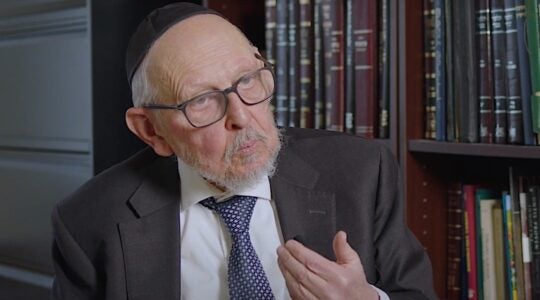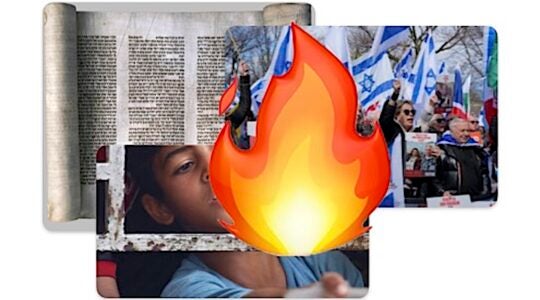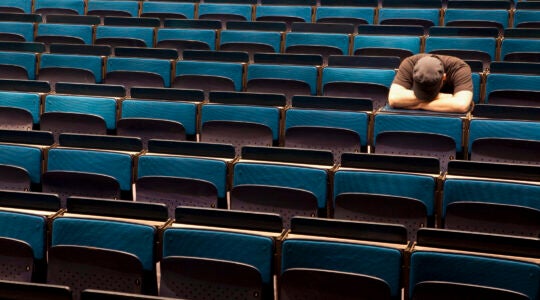“A yarmulke is an indoor garment.” Ask any male Ramaz graduate from the 1940’s through the mid-‘60’s and he will recognize that declaration as one with which we – and others of our age – grew up. We didn’t wear kipot outside. We wore hats or no head covering. Essentially, we didn’t identify as Jews in the street, a street that was not entirely welcoming to us. It was a time of overt or covert anti-Semitism and we were acculturated to be aware of it and respond accordingly.
Three factors in the decade of the ‘60s dramatically altered our culture, our feeling of insecurity and our posture as Jews. First, the Black Revolution, which declared that “Black is beautiful”, modeled for us a feeling of pride that “Jewish is beautiful, too.” Second, the renaissance of Soviet Jews in the former Soviet Union set an example of public heroism that inspired American Jews. If Vladimir and Masha Slepak could hang a banner from their window overlooking Gorky Street (Moscow’s Park Avenue) saying “Let us join our brothers and sisters in Israel” – and risk their freedom and lives in the process – we in New York could march down Fifth Avenue in support of them and dramatically demonstrate our commitment to Judaism, Zionism and the cause of freedom for Soviet Jews. Finally, the miraculous victory of Israel over its murderous foes in the 1967 Six Day War gave Jews in America a new burst of pride in being part of the People of Israel.
In retrospect, American Jews emerged from the 30’s, 40’s and 50’s, when we were, in effect, bent over like question marks, to the 70’s and beyond when we are able to stand as exclamation points. The difference wasn’t grammatical; it was and is existential.
This difference is now being challenged by recent hate incidents perpetrated by hooligans sporting Palestinian flags, who have shouted anti-Semitic verbiage at kipa wearing Jews in Los Angeles and New York and, in the New York case, physically assaulted a husband and wife on the Upper East Side. When I read about the New York attack, my first instinct was to wonder to myself – and share in an email – whether “perhaps we should think about suggesting to boys to wear baseball hats rather than kipot outside,” i.e. should we return to the status quo mindset of “A yarmulke is an indoor garment?”
I believe the answer to that question is an emphatic “NO!” for three reasons.
First, a couple of nasty, isolated incidents on two coasts are not a trend. They are disturbing, worrisome and even frightening, but they are the kind of hateful events we have experienced before. They should not shake our confidence or cause us to alter our behavior.
Second, if we are concerned about the spread of anti-Semitic hooliganism, cowering in fear and hiding our Jewish identity in public is precisely what we should not be doing. This would represent surrendering to the Jew-haters who want to terrorize us and claim “the street” as their own. This is what has happened in France, Belgium and elsewhere and we should not allow it to happen here. The American street belongs to tolerant, law-abiding and peace-loving citizens like us, and not to intimidating, hate-mongering thugs.
Finally, we should take these assaults seriously, speak out against them, demand proper police protection from the authorities – which, by the way, New York’s finest are already providing – and create a culture where intimidation will not be tolerated. This will require a concentrated effort to persuade the American public and the authorities that the loss of control we have witnessed in Paris, Antwerp and, to some extent, London, came about because small, hate incidents and crimes were ignored. We cannot tolerate that here. The public and the police have to be vigilant and unrelenting on making our society safe.
The yarmulke of yesterday may have been an indoor garment; but the kipa of today and the public pride in our Jewishness is not negotiable. We must exercise prudence, diligence and common sense, but we must maintain our exclamation point posture.
Rabbi Haskel Lookstein is the rabbi of Congregation Kehilath Jeshurun in Manhattan.
The New York Jewish Week brings you the stories behind the headlines, keeping you connected to Jewish life in New York. Help sustain the reporting you trust by donating today.




